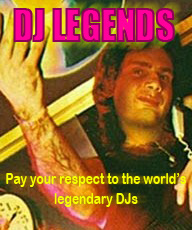Key (music theory) - Doubts
Key (music theory) - Doubts Posted on: 02.10.2013 by Patty Dauer Hey guys,Ok i need some things to be cleared up regarding the 'Key' of a songs. How do i decide in what key i want my song to be in?? Once decided, does everything(basses,melody,pads) have to be in that scale which the key is in? or can i just keep the melody in one key and the chords in another and mix match everything? When i say the key of d# all the keys from the d# scale will be used right? Also do u suggest learning all the scales or all the major minor chords at the back of my hand? Asking this ^ becoz im never going to perform live. I produce progressive/electro. I already know all the major minor chords as well as the major scales so when ill be producing i can always look these up and then record according to that so why do need to even like learn it too well? Please help me. Thanks | |
| Patty Dauer 02.10.2013 | Hey guys, Ok i need some things to be cleared up regarding the 'Key' of a songs. How do i decide in what key i want my song to be in?? Once decided, does everything(basses,melody,pads) have to be in that scale which the key is in? or can i just keep the melody in one key and the chords in another and mix match everything? When i say the key of d# all the keys from the d# scale will be used right? Also do u suggest learning all the scales or all the major minor chords at the back of my hand? Asking this ^ becoz im never going to perform live. I produce progressive/electro. I already know all the major minor chords as well as the major scales so when ill be producing i can always look these up and then record according to that so why do need to even like learn it too well? Please help me. Thanks |
| Monserrate Rupnow 04.10.2013 | And that's the basic clif notes version! |
| Lakeesha Storman 04.10.2013 | It's monstrous because music theory is monstrous. If you want to know the basics of how to make music sound good, you have to know about music theory. Or get hella lucky |
| Giselle Giffels 04.10.2013 | That is a monster of an instruction manual, but I'll mark it and keep it in my pocket for reference. I found this though, if anyone is interested. I just find it difficult to read, I'm not dyslexic, but the words like jumble together and I get mad tunnel vision so videos, being able to hear what the person is doing, is nice. |
| Lakeesha Storman 04.10.2013 | Chrxstxxn, read what Tarekith posted. Making a song in a key just implies using the notes for that particular key in your melody, harmony, etc. I believe I saw notes for each key in Ch 1 of what Tarekith posted. |
| Monserrate Rupnow 04.10.2013 | Basic music theory for electronic based musicians: http://www.worldofbryan.com/rsg2mt.pdf |
| Giselle Giffels 04.10.2013 | Yo I'm pretty sure this is exactly my issue, but can someone make this a tad bit more simplistic for me brain to understand? So like, in FL studio, when you open up Piano Roll, let's say I put something to C5, is that a key? I am too confused and I am sure this is one of the key things I need to start producing. I've always found that my hats clash with my kicks and the kicks the synth, they just sounded so damn off. NOW, NOW I UNDERSTAND WHY AND THIS IS MONUMENTAL. How do I go about making a song in key? |
| Patty Dauer 03.10.2013 | hhaha luckily i dint get confused in this i shall have a look the 2 links....Thanks a lot for helping out man |
| Lakeesha Storman 03.10.2013 | Yes, everything should be in the same scale, or musical key, all basses, pads, leads, vocals, etc. If one thing is playing an F note while something else is playing an F# note, it's going to sound horrible. The thing with chord progressions is they lead the listener through a range of emotions and then there is usually a feeling of "release" when you get back to the chord of the scale or musical key. Obviously you don't always want to use the same chord progressions, but even within chord progressions there are many different options or alternatives. You can visit http://www.free-online-piano-lessons...gressions.html and http://garyewer.wordpress.com/ to learn a lot more about chords and chord progressions. Knowing those chord progressions in each key/scale will help you writing music. Additionally, even a melody with only single notes playing at a time is essentially a simple chord progression and why you will see guitar chord tabs on sheet music for a piano. The notes of the melody are notes within the chord, and when you move to a note not in the chord, you're "switching" chords. If you start by creating your chord progression you'll know which notes can be played with your melody. So yes, get creative, but you can be very creative sticking to the tried and true chord progressions without it sounding the same every time. Your melody can still be quite different, the fact you're in a different key will help as well. You could also use jazz/blues progressions, etc. for some classic house or deep house sounds. One of the links above has a list of chord progressions and the chords involved in the chord progression for each scale/key. I'm not positive, but I'm fairly certain that reading from the two resources I linked to will explain chords, how they're comprised as far as how many steps from the root, etc. whether the chord should be major or minor. If you can take all that in, you'll be able to know which chords are in which key/scale. It would be too long of a discussion to post here. Questions aren't stupid, there's a lot to learn about music. Hopefully I'm helping you understand as opposed to confusing you more. |
| Patty Dauer 03.10.2013 | When u say all everything should be in the same key it means same scale right? all the basses/pad/lead in B maj or D maj or whichever scale, right? Why do u suggest me to learn the typical chord progressions? Don't i like have to get creative out there and try my own stuff? and is there any easy way (exercise) to learn what chords belong to which key? Sorry if the questions are stupid, i'm just trying my best to understand this stuff. |
| Sydney Lashway 04.10.2013 | @sagar4848 Inbox me if you have anymore questions. I have a short document that I can send you that I was working on. |
| Lakeesha Storman 03.10.2013 | Yes, all notes (not keys - those are things on a keyboard or the scale the music is played) should be in the same key for bass, leads, pads, etc. It will sound horrible if it's not, although there are some keys that have the same notes as other keys where you won't notice it's a different key. For instance, going from C Maj to G Maj or F Maj only has one different note, F# or Bflat respectively. That's why mixing harmonically is easier by using the Camelot wheel and only mixing one key up or down may not sound bad as you only have one note difference between the scales. What key a song should be in is largely dependent on what key you believe your melody or chord progressions sounds best or most accurately expresses your feelings. While you don't necessarily have to learn the scales, it should be easy enough to write your song in an easy key such as C Maj/A min, then you can transpose the key later by moving the notes up or down to fit the key that sounds best for your song. What you should learn is the typical chord progressions: I, IV, V; etc. and maybe what chords belong to each key. I've not found knowing scales to be much of a help in performance/writing unless I'm going to be improvising. |
| Sydney Lashway 03.10.2013 | Stick to ONE key at first!!! Start with A minor. Why you may ask? Because A minor has no accidentals (sharps or flats) learn the patterns, boxes, whatever inside out for that key. Once you get comfortable with that, do some research and start incorporating the relative major. In this case it'll be C Major. I started writing a intro to applied music theory that I was going to submit to DJTT. I'll try to finish it and just post it up here for free. It addresses a lot of issues like this. |
<< Back to Producer tips and DAW informationReply



